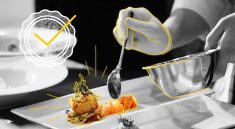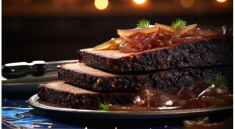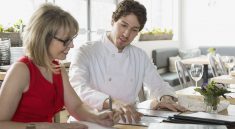As a new cook, you may feel intimidated and worry about incorrectly preparing, cooking, and storing food. Here are some ways to feel more confident in your cooking and avoid any foodborne illnesses.
Keep Things Clean
The best way to reduce the risk of foodborne illnesses is by keeping things clean in the kitchen. Before handling any food, you must wash your hands. Wash them thoroughly and dry them to get rid of any unwanted germs or bacteria.
Different foods must be cleaned differently. Fruits and vegetables can be washed in the sink, whereas it is unadvisable to wash meat. Washing raw meat can splash bacteria and germs to nearby surfaces and other food.
Separate Your Ingredients
Cross-contamination is a huge cause for spreading foodborne illnesses. Raw meat and poultry must be kept away from cooked or ready-to-eat food. When preparing different foods and ingredients, it is important to keep them separate. Use different cutting boards for meats and other foods and avoid using the same knife to chop different ingredients.
Cook at The Right Temperature
Unless you’re a seasoned chef, you might not be able to tell if your food is cooked through just by looking at it. The easiest way to ensure that you’re cooking your food to the right temperature is by using a food thermometer. As a rule, beef and pork should be cooked to 62 degrees Celsius, eggs and ground meat should be cooked to 71 degrees Celsius, and chicken and turkey should be cooked to 74 degrees Celsius.
Keep Your Food Cool
After your food is prepared, it needs to be stored in the fridge or the freezer. Food left out in the heat can become spoiled, and the bacteria in the food can multiply very quickly, leading to foodborne illnesses if consumed. Make sure that you refrigerate perishable food within two hours of cooking and throw out any food that has been left out in the heat for more than two hours.
If you can get these four basic rules down perfectly, you can reduce the chances of spreading foodborne illnesses almost entirely. Now you can start experimenting more in the kitchen and become more confident in your cooking skills. If you’re interested in learning more about food safety, you can take online food safety courses.
The Australian Institute of Accreditation offers a great Food Safety Supervisor course in Victoria that you must check to learn more about food safety.





